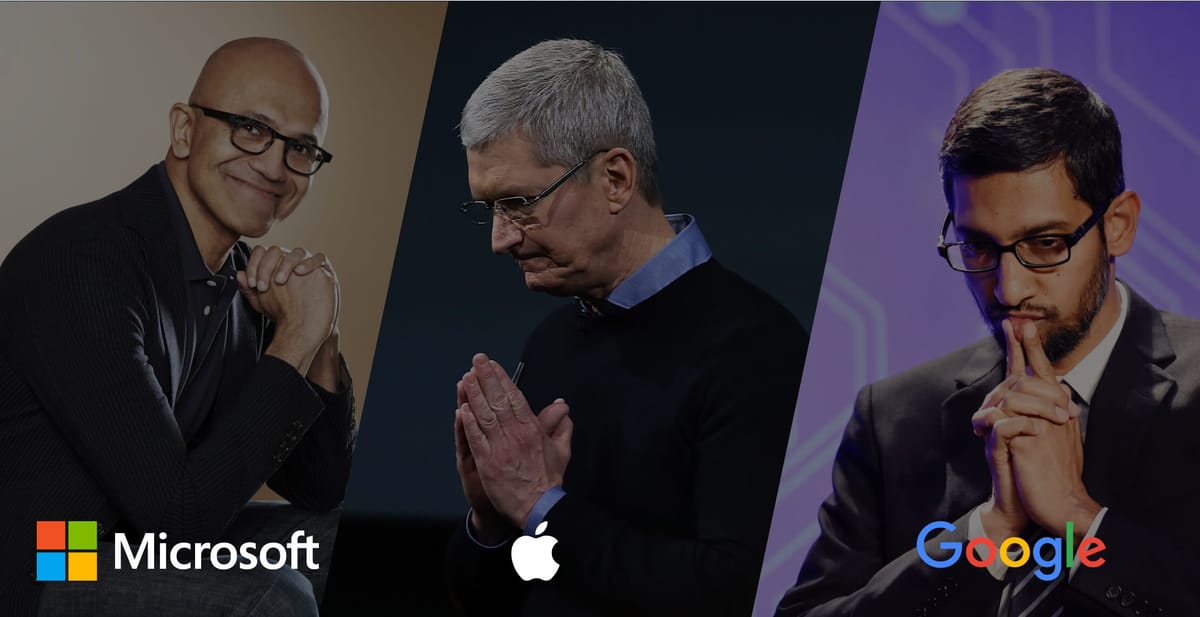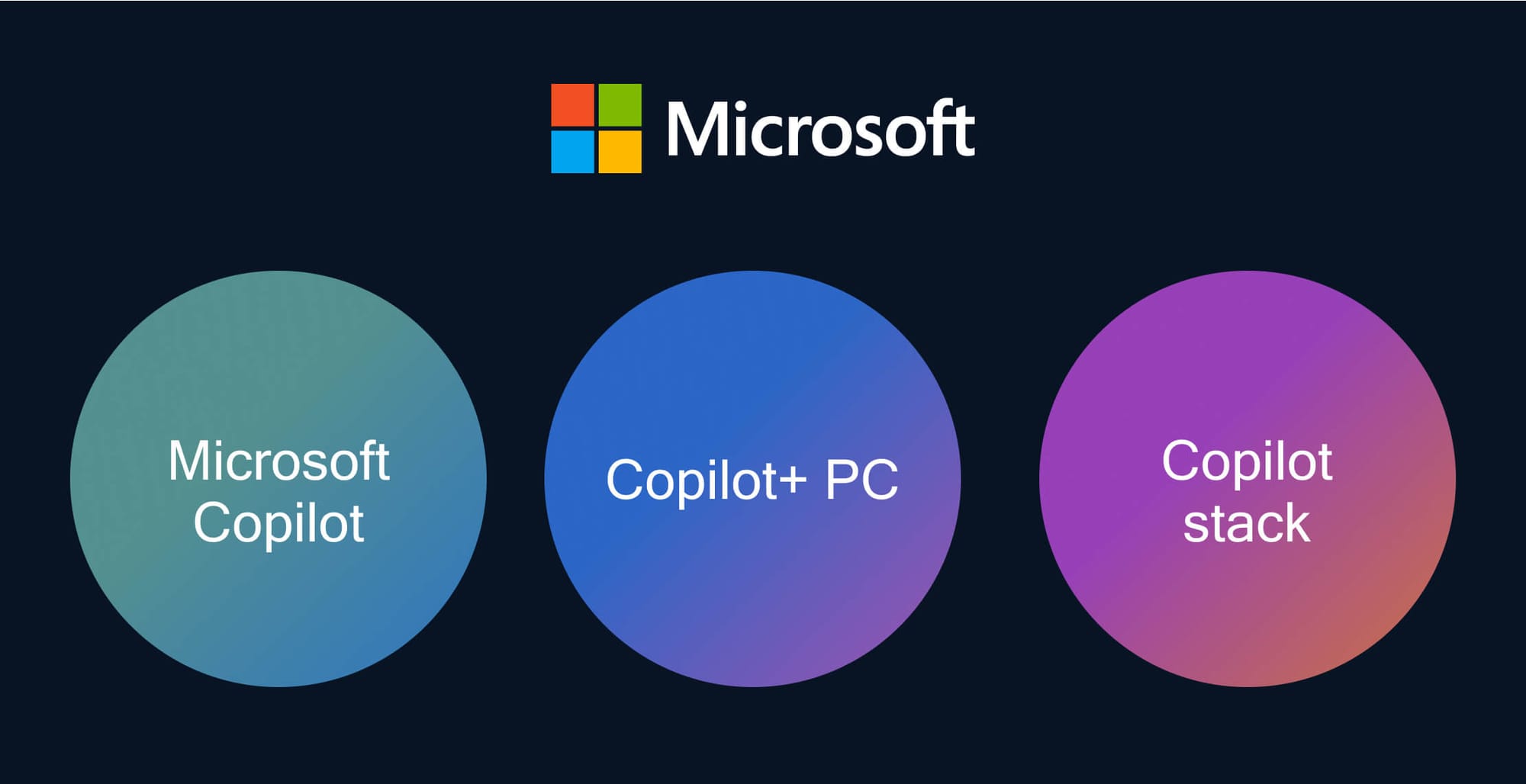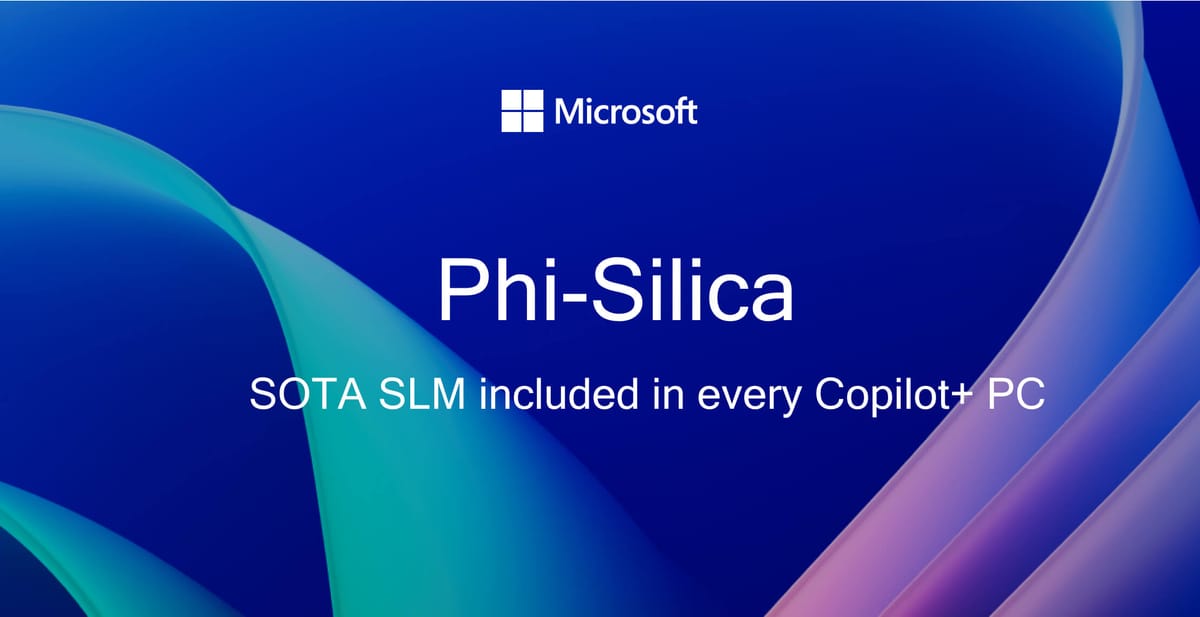
Like Google did last week, Microsoft is releasing a smorgasbord of AI announcements at its annual Build conference. In an attempt to help you digest it all, in this article, I'll cover what I think are the biggest takeaways. I'm going to start by taking a hard position:
With Copilot, Microsoft has created the best platform for developers looking to build AI products and intelligent solutions—especially for enterprises.
Now that we've had Google I/O and Microsoft Build, two of the three major players have shown their hand and we have a pretty good idea as to what we can expect from them over the next 12 months. With that said, I cannot overemphasize the enviable position that Microsoft is currently in. Their competition at this point is basically Google (with its models and hyperscale infrastructure) and Apple (with its consumer devices and operating systems). However, note that neither offers as complete solution for the AI era like Microsoft, which which offers all four and more.

Let's start with Google. Their impressive new AI tech, including LearnLM, Gemma, and Gemini 1.5, along with some of the new capabilities in Google Workspace, Google Cloud, and Pixel devices, is indeed robust. However, the lack of a serious PC contender (Chromebooks just don't cut it) leaves a significant gap in their AI ecosystem. Furthermore, the potential disruption to their search business model and the ripple effect on the creator economy will need their attention in the short term.
As for Apple, while we'll have to wait and see what they bring to the table at WWDC next month, the have a high bar to meet. And to be clear, this isn't in any way meant to write Apple off, I just don't think they're there yet. I'm sure they will have exciting announcements and release incredible new devices later this year. In fact, if their recent iPad event is any indicator, this year will see their most impressive hardware yet.
Their M-series custom silicon has significantly outperformed competitors since launch, and the new M4 line is already looking to be another banger. Plus, Apple is the reigning king of consumer electronic products—hardware won't be a problem. At WWDC, we'll likely see Siri finally become an actual AI assistant, an "Apple AI" language model that runs locally, and a slew of new AI frameworks for MacOS and iOS.
The problem for Apple is twofold. First, they do not own key pieces needed to deliver a vertical integrated AI platform—e.g. its own web search engine, hyperscaling cloud infrastructure, and most importantly, it's own frontier cloud-based models. These are all things that they will likely build over time, but for now, they would have to rely on partnerships.
Secondly, data is the ingredient that makes AI models actually useful. However, Apple's long standing privacy policies may be at odds with the access developers will require to build useful solutions.
In contrast, since Microsoft owns every part of the stack—the devices, the OS, the software, the developer tools, the models, the hyperscaling cloud—they have none of these restraints or concerns. The reality is that Microsoft has made strategic investments in talent, technology, and strategy over the past decade to drive their AI vision forward. Now those investments have positioned them to make a compelling case as to why the Copilot ecosystem should be the go-to choice for building AI-powered products and experiences.
Here are 5 announcements that they made at Build this week that support this:
1. Copilot+ PCs
Microsoft introduced Copilot+ PCs, a new category of devices that are the fastest and most AI-ready PCs ever built. Powered by cutting-edge neural processing units (NPUs) capable of delivering up to 40 TOPS of compute, these PCs offer unprecedented performance and efficiency for AI workloads. Qualcomm's Snapdragon Dev Kit for Windows, featuring a developer edition Snapdragon X Elite SoC, further empowers developers to create differentiated AI experiences that run on the edge. They compared it with the MacBook Air M3 and the Copilot+ PC smoked it.
2. Windows Copilot Runtime
The Windows Copilot Runtime is a fundamental transformation of Windows OS, enabling developers to accelerate AI development on Windows. It includes the Windows Copilot Library, a set of APIs powered by 40+ on-device AI models, as well as AI frameworks and toolchains for bringing custom models to Windows. This end-to-end platform abstracts away the complexity of rapidly evolving AI technologies, providing developers with a stable target for building intelligent applications.
3. AI Models

Windows is officially the first platform to ship with a state-of-the-art small language model, Phi Silica, custom-built for the NPUs in Copilot+ PCs. Microsoft also announced that GPT-4o, OpenAI's flagship multimodal model, is now available in Azure AI Studio. With support for text, audio, image, and video input/output, GPT-4o enables developers to transform any app or website into a multimodal, conversational canvas. Developers can also access over 1600 third-party models on Azure AI Studio.
4. Powerful Developer Tools
Microsoft also released many new tools to help developers be more productive when building AI applications. Firstly, GitHub Copilot, the most widely adopted AI developer tool, is gaining even more capabilities through Copilot Extensions. There is an exciting new partnership with Cognition to bring Devin, their "AI software engineer" to developers. Support for WebNN brings performant AI capabilities to web apps, while Dev Drive accelerates workflows with near-instantaneous file copy operations. The Windows Subsystem for Linux (WSL) has been enhanced with enterprise-grade security features, and PyTorch is now natively supported on Windows via DirectML.
5. Beyond Windows
Finally, the Windows ecosystem is expanding beyond the PC to enable AI-powered experiences across a variety of form factors and devices. Windows 365 brings the power of cloud PCs to any device, while a new partnership with Meta allows Windows apps to extend into 3D space on Quest devices via a volumetric API. This expanding ecosystem gives developers even more ways to reach users with their AI applications built on the Microsoft platform.
Ultimately, the most valuable thing about Microsoft's Copilot platform may be its stability, which stems from its abstraction from the underlying model and infrastructure layers. This abstraction allows developers to focus on building intelligent solutions without having to worry about the complexities of rapidly evolving AI technologies. This stability also translates to a consistent experience for end-users, who can rely on Copilot-powered solutions to function seamlessly across different devices and platforms.


